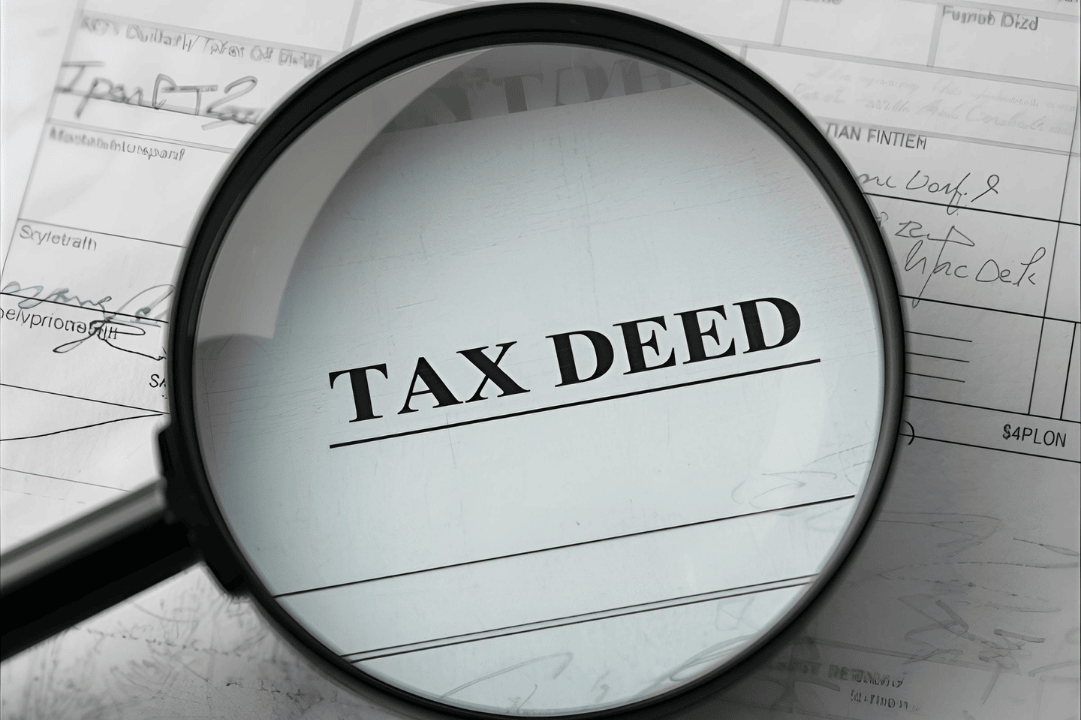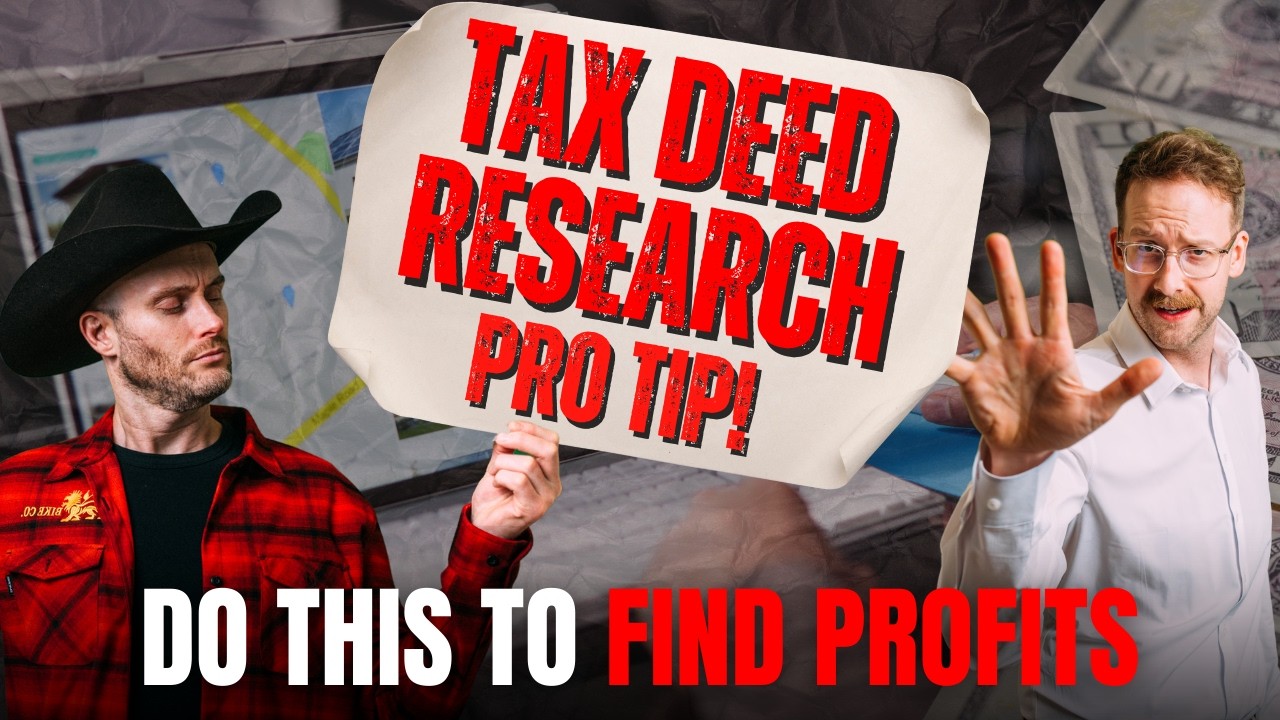Last Updated on October 23, 2025
Table of contents
Tax Deed Research Pro Tip! Profits Unleashed
Tax deed auctions let you buy property for the cost of unpaid taxes. Counties hold these sales when property owners fail to pay their property taxes.
In Florida, for example, if taxes go unpaid for about two years, the county auctions the property with a starting bid equal to the back taxes and fees. Because the county mainly wants its tax money, you can sometimes buy real estate at a big discount.
In the video above, Cory and Josh show how to research these deals. Their advice is simple: do your homework before you bid.
What Is a Tax Deed?
A tax deed transfers property ownership after the government sells the property for unpaid taxes. Once the redemption period ends, the county sells the property to the highest bidder. Often, the deed clears away most old debts. This is different from a tax lien certificate, which only gives the holder the right to collect back taxes.
Tax Deed Research Steps
- Look up the property.
Search the county’s tax or property website using the parcel number. These records list the address, owner, assessed value and property type. That tells you whether you’re buying land or a building.
- Check the tax bill.
See how much the owner owes and for how long. Compare the unpaid tax with the property’s value; a large debt may mean more risk.
- Visit or view the property.
Many tax deed properties have been neglected. If you can, drive by or use online maps to see the exterior. PropertyOnion advises looking at the outside, checking the land and viewing public appraisal data. Even a quick look can show major problems.
- Search for other liens.
Some homes come with other liens or legal issues that do not go away after the sale. Check public records or pay for a title search to find outstanding liens or zoning problems.
- Plan your exit.
Decide in advance whether you will sell, rent or hold the property. Factor in repairs and holding costs; a cheap purchase is only good if you can make money later.
These steps help Cory and Josh avoid bad deals, such as tiny strips of land or unsafe houses. Their main takeaway is: never bid without knowing the property’s true value, condition and debts.

Extra Tips for Tax Deed Research
- Focus your list. Ask the county for the sale list and filter it by price, property type and location.
- Expect repairs. Owners who cannot pay taxes often cannot fix their homes. Visit the property or study photos and records before bidding. Checking the neighbourhood can reveal flood risk or crime.
- Use official sources. County tax websites and auction pages publish useful details. Learn how to navigate them to make research quicker.
- Learn from others. Attend auctions as a spectator and speak to experienced bidders.
Mistakes to Avoid
- Buying sight‑unseen. Always check the property’s exterior; unseen damage can ruin your profit.
- Assuming the title is clean. Some liens or lawsuits can survive the sale. A title search helps you spot these. Also, each county has its own rules and deadlines; missing one may cancel your bid.
FAQ
A tax deed sale gives you ownership of the property when taxes are not paid; a tax lien certificate lets you collect back taxes and interest, but does not transfer ownership unless the owner fails to pay.
Often, yes. Many tax deeds wipe out old mortgages. However, some liens, such as federal tax liens or code violations, may remain.
Use county records or hire a title company. FastTitleSearch advises looking for other liens and title issues before bidding.
Most counties require full payment soon after the sale, so you usually need cash. Plan your funding before bidding.
Conclusion
Tax deed auctions can offer great deals because you start bidding at the unpaid tax amount. Yet not every low price is a good purchase. By following a disciplined tax deed research process—verifying official records, assessing condition, checking for liens and planning your exit—you can avoid expensive surprises and make informed bids. With patience and good information, you can turn unpaid taxes into a solid investment.






